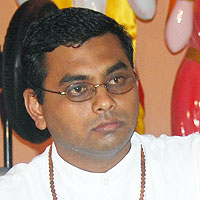“If I were asked under what sky the human mind has most developed some of its choicest gifts, has most deeply pondered on the greatest problems of life and has found solutions of some of them…I should point to India.” Max Muller.
From a historical perspective, India, the land that set the scene of the ancient scriptures of Hinduism is popularly referred to as the cradle of civilisation. The catalyst that catapults any civilisation to the status of superior power in the world is none other than the principles and concepts that are entrenched in the pages of the Vedas, Ramaayan, Mahaabhaarat, Puraanas and other Hindu texts.
Whether it is language, science, literature, mathematics or other strands of evolution of development, Hinduism has stamped its name everywhere. Outlined below are just a few of the myriad concepts of Hinduism that have occupied premier positions in the development of world thought and uplift.
Energy: Hinduism postulates that everything in the world is energy vibrating at different frequencies, a principle of science today. Whether it is heat, light, sound or other forms of energy, the concept of ‘shakti’ or energy is dealt with at length in the Devi Bhagawat Puraana. In fact, this text focuses greatly on physics and many of the strides made recently in the western world have been scripted centuries ago on the pages of this text.
Language: Sanskrit, quite often referred to as the mother of all languages is the most perfect language in the world with a scientific alphabet, an organised and logical grammar and syntax system that is second to none. It provided an ideal blueprint that led to the offshoot of other languages. In Hinduism, Sanskrit is termed ‘Dev-Baani’ – the language of the Gods.
Cosmological laws: Quite a number of universal laws that cut across all boundaries of religion, race and other distinctions, have their source in Hinduism, encoded within scriptural verses, emanating from the depthless philosophical truths of Sanaatan Dharma. A few of them are the laws of ‘karma’, transmigration of the soul, reincarnation and liberation. Knowledge of these laws empowers man, directs him towards the route of responsibility for himself and allows him an even chance in this ‘playing field’ of the world of self-evolution.
Health: Wellness is a pre-condition for any aspirant who intends to travel the road leading to enlightenment. Naturally, with optimum physical health, one can accelerate his speed on the road ahead. From the Vedas are deduced practical arts of surgery and medicine. Ayurvedic medicine applies the use of herbal remedies. In Devi Gita of Devi Bhagwat Puraan is espoused the knowledge and practice of ‘Ashtaang Yoga’ which leads to the realisation of the Divine. Included in this eight-fold path are the disciplines of ‘aasan’ (yogic posture), ‘praanaayaam’ (breath control) and ‘mitaahaar’ (control of diet).
Just to name some other concepts gleaned from the pages of principles of Hinduism are the cyclical nature of time, of creation and destruction, the cyclic nature of evolution, the reverence and sanctity of the environment, space travel, zero, infinity, astronomy, astrology, the decimal system and architectural designs.
Indeed, the contribution of Hinduism to world thought and development is magnanimous. In the words of Max Muller, “The thinkers of India seem to have superiority over most of the philosophy of the west.”


